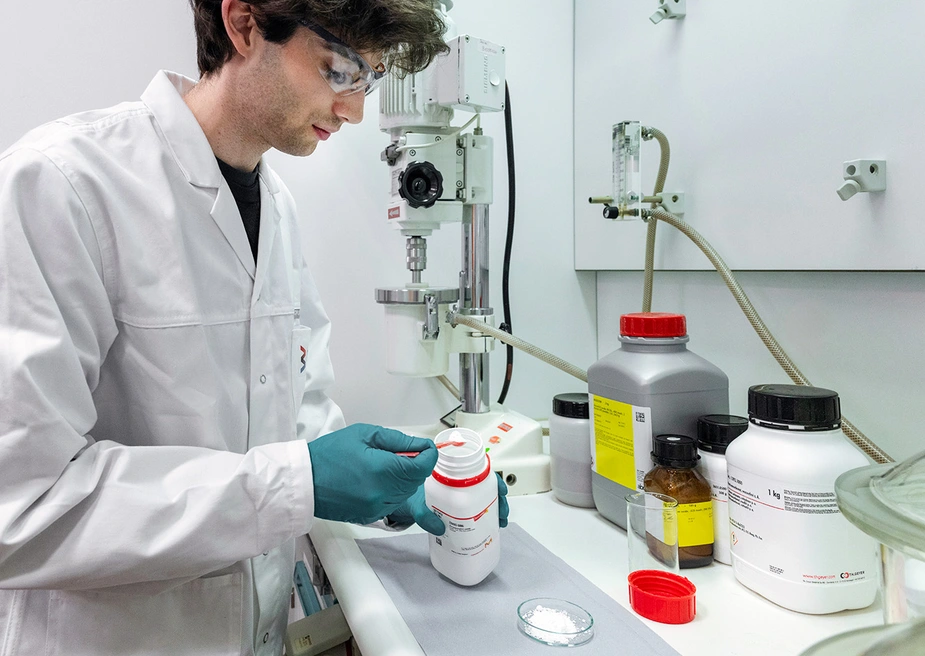BAM develops powerful alternative to lithium-ion batteries
Innovative approach to make solid-state batteries more sustainable, cheaper, and more efficient
Researchers at the Federal Institute for Materials Research and Testing (BAM) have developed an innovative approach to make solid-state batteries more powerful and suitable for everyday use. Their goal: batteries that charge faster, last longer, and are more sustainable than conventional lithium-ion batteries. A new solid electrolyte could pave the way for a pioneering battery technology.
Conventional lithium-ion batteries have reached the limits of their performance: their anodes, which are usually made of graphite, can only store a limited amount of ions. Anodes made of pure lithium or the more sustainable and cheaper sodium offer an alternative – they could increase energy density by up to 40 percent. However, to operate safely, they require a solid electrolyte instead of a liquid one. A key problem here is that contact losses and voids can occur at the interface between the solid anode and the solid electrolyte, rendering the battery unusable. One possible solution is a partially liquid anode.
Revolution through liquid alkali metal anodes
“In a study, we were able to show that a liquid alkali metal anode is a hundred times more powerful than conventional graphite anodes,” explains Gustav Graeber, battery material expert at Humboldt University in Berlin and guest researcher at BAM. “However, this technology can currently only be used at 250 degrees Celsius. Our goal is to transfer its advantages to room temperature.” To achieve this, the research team is experimenting with potassium additives that lower the melting point of the anode. The challenge here is that many common solid electrolytes are not stable enough when exposed to potassium.
New solid electrolyte as key technology
The solution could lie in a special solid electrolyte based on sodium super ionic conductors (NASICON). These materials offer high ionic conductivity at room temperature and are chemically stable against potassium – especially when doped with hafnium. However, hafnium is rare and expensive. In the NASICON project, Graeber and his interdisciplinary team of BAM experts are therefore looking for alternative additives that are just as effective but more sustainable and widely available. The most promising candidates are being tested directly in sodium batteries. “Our research project is a decisive step toward high-performance batteries that are more sustainable, cheaper, and more efficient,” says Graeber. “Sodium solid-state batteries could drastically reduce charging times and significantly improve the performance of mobile and stationary energy storage systems—an important contribution to decarbonization.”
Further information:
BAM research: Electrical energy storage
Press release BAM, 15 May 2025
